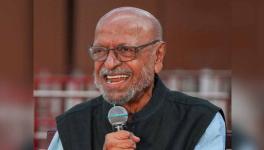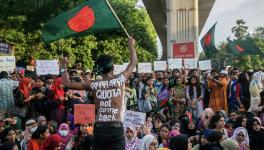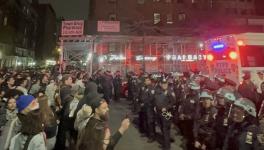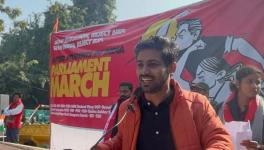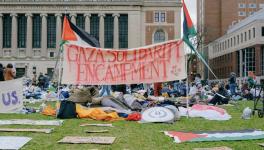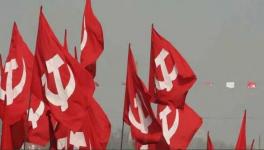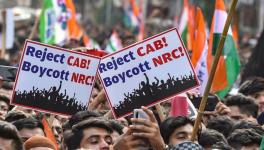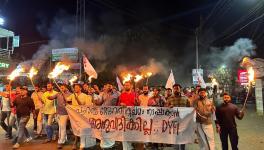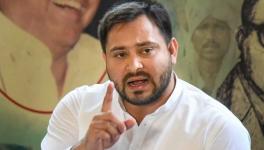Success of Pathaan vs Ban on BBC Documentary
India’s political context subliminally pits Pathaan against the BBC documentary—India: The Modi Question. Released six days apart, both films battle to capture our sensibilities, thus creating a medley of binaries—reel India versus real India, memory versus forgetting, and suppression versus defiance.
There was an effort to demonise Pathaan because of the saffron bikini that Rubina Mohsin (Deepika Padukone) wears in a dance sequence with Pathaan (Shah Rukh Khan). The film was castigated for having been “shot with a dirty mindset”.
Hindutva trolls hoped viewers would boycott Pathaan. By contrast, it was the State that blocked access to India: The Modi Question online, believing Indians should not watch the alleged unseemly past of Prime Minister Narendra Modi.
Both Pathaan and the BBC documentary are political. Pathaan employs double entendre for messaging. The Modi Question is an out-and-out political documentary. People like Justice (retd) Markandey Katju are dismissive of Pathaan, dubbing it as nothing less than a circus.
But no less than one of India’s most cerebral movie directors Anurag Kashyap, in an interview, said, “People have been saying that one must leave one’s brain behind while watching the film. I tell them that I took my whole brain along for the film. I noticed how cleverly… [the film] has put across the message of unity. I am marvelling at that.”
Kashyap marvels because he, like us, lives in a socially disunited India. In the interview cited above, he said, “Boycott Bollywood, anti-Muslim narrative, whatever you may call it, is just tiring.” He said this negative energy is exhausting, adding, “So, right now, Pathaan is not just a movie. It’s a festival, a celebration [of unity].”
Darkled Mission
Social unity did, in the past, come under periodic strain in India. But rarely had that unity seemed so broken as during the 2002 riots in Gujarat. Muslims were the principal victims, killed and raped, helpless and hopeless. Gujarat’s chief minister then was Modi, who is now cultivating a new persona of humanism for himself. Yet the demonisation of Muslims has become acceptable, not least because of Modi’s refusal to restrain people like Home Minister Amit Shah, whose speeches drip with hate.
Switch to Pathaan, which has Pakistani General Qadir (Manish Wadhwa) suffering from cancer. He has a maximum of three years to live. With time running out, Qadir believes he must compel India to rescind its decision to read down Article 370. For his mission, Qadir commissions Jim (John Abraham), an operative of the Research and Analysis Wing (RAW), India’s foreign intelligence agency, who has gone rogue.
In the historical past, Mohammad Ali Jinnah, like Qadir, suffered from a terminal illness, albeit tuberculosis—and was expected not to live a year beyond 1947. Academician Stanley Wolpert says Jinnah feigned normalcy, despite suffering acutely, as a strategy. S Akbar Ahmed, in Jinnah, Pakistan and Islamic Identity: The Search for Saladin, writes, “Had [Viceroy] Mountbatten got a hint of his condition, there would have been no Pakistan.”
This is the reason Jinnah went for broke and became irresponsibly divisive. A million died as India was partitioned.
Through Qadir and his illness, Pathaan connects the audience to the trauma of 1947. Yet Gandhi-Nehru’s composite nationalism was not a failure. The paragon of its success is the protagonist. It is Pathaan, after all, who ultimately saves India. Even though the film is ambiguous about his identity, the name Pathaan suggests Muslimness, particularly because Shah Rukh Khan is Pathan by biradari. India’s alienated Muslim community, blamed for vivisecting India, has produced a patriot and nationalist—Pathaan in reel India and Shah Rukh Khan in real India.
Jim and Qadir’s inhuman quests are matched by Gujarat’s political class in the BBC documentary, which shows the police idling around as the state burns. The documentary depicts the police brutally suppressing protests against the amended citizenship law—and even participating in the 2020 Delhi riots.
Turning Against State
Would the suffering of Muslim victims embitter and enrage them?
In Pathaan, Jim turned rogue because India’s policy of not paying ransom to terrorists provoked them into killing his wife. He seethes to punish India. Jim is as much a victim of his political context as, say, the relatives of those killed in Gujarat or Delhi because the State abandoned them.
But an individual’s suffering cannot be a justification for them to turn against their own country.
In Pathaan, Rubina, despite the Pakistani establishment killing her father, served as an agent of the Inter-Services Intelligence, Pakistan’s spy agency. Yet Jim and Qadir’s inhuman mission prompts Rubina to pair up with Pathaan to save millions from a virus. The individual, in other words, is justified to turn against his or her State in case its policies lead to mass extermination.
But how do victims become reconciled with the State? Victims like Jim. Like Gujarati Muslims. Like Delhi’s Muslim youths incarcerated under the Unlawful Activities (Prevention) Act. Unlike the BBC’s documentary, which records their lament, Pathaan suggests a path—live according to the principle of Kintsugi, the Japanese art form of repairing broken pottery with molten gold, which makes it even more precious than it originally was. It is usable as well.
Likewise, an individual’s fragmented self can be pieced together by working for a collectivity, such as the nation. This realisation never dawns on Jim.
Secular Identity
The Christian name Jim has us thinking whether the film-maker deliberately obviated a controversy by not giving him a Hindu identity. Most likely. But it is also true Jim does not flaunt any Christian markers. As a matter of fact, nor does Pathaan display his Muslimness.
Both Jim and Pathan symbolise our founding father’s ideal of creating the Indian who is more than the sum of his or her religion, caste and language. When people are trapped in their religious identity, as is often the case in India, they become un-Indian and inhuman, as the BBC documentary depicts.
Pathaan is an unwanted child. His parents abandoned him in the most unlikely place—a cinema theatre. This is a prompt to the audience to think of the Hindi film industry where religious identity did not matter—and where it should not matter. It is thus subtly critical of those trying to now communalise Bollywood, a shining example of composite India.
Pathaan got his name courtesy of the residents of an Afghanistan village, which he saved from being blown up. This thematic riff suggests to the audience that Afghanistan may have spawned terrorists, but it also has humans who are generous and grateful. Even Rubina symbolises the good Pakistani. The message is lucid—the civilisational principle of humanism unites South Asia.
The ban on the BBC documentary had people find a way around to view it. In several universities, students defiantly watched The Modi Question publicly. The manufactured controversy over Pathaan saw the people throng theatres, signalling to the BJP that they, to quote Kashyap, are just too exhausted hating.
The author is an independent journalist. The views are personal.
Get the latest reports & analysis with people's perspective on Protests, movements & deep analytical videos, discussions of the current affairs in your Telegram app. Subscribe to NewsClick's Telegram channel & get Real-Time updates on stories, as they get published on our website.









